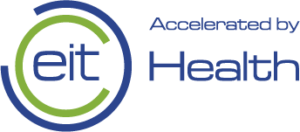Lynch syndrome. Even though it is the most common hereditary cancer syndrome in the world, it is mostly unknown. Lynch syndrome prevalence is currently estimated at 1 in 279 globally[1], meaning that in Europe alone there are over 2,5 million so called LS mutation carriers.
To improve awareness for Lynch syndrome, the 22nd of March has been declared as Lynch syndrome awarness day. If you don’t know what Lynch synrome is, the video below gives a short overview, and you can also find more details after the break.
People with Lynch syndrome have an up to 82% risk of developing colorectal cancer during their lifetime, compared to 6% in the general population, and are also likely to get cancer approximately 20 years earlier with a mean age of 45.[2] Due to the inherited MMR deficiency, the hallmark of Lynch syndrome, simultaneous and sequential cancer risk persists throughout the lives of affected individuals. Lynch syndrome is most prominently linked to colorectal and endometrial cancer, however, other types of cancer, including small bowel, bile duct and gall bladder, ovarian, urinary tract, kidney, stomach, pancreatic, and prostate cancers also occur at significantly higher rates compared to the general population. [3]
However, today it is estimated that only about 5% of Lynch syndrome cases are diagnosed. Taking into account that cancer prognosis is much better when cancer is detected at an early [4], high-risk populations like LS mutation carriers should be identified as early as possible enabling risk mitigation and preventive measures, such as early and frequent clinical follow-up with colonoscopies, diet adjustments, supplements and medication, or pre-emptive removal of organs. The massive healthcare cost of several billion Euros for treating related cancers could be drastically reduced by early detection of LS. The 95% of currently undiagnosed LS cases could avoid the burden of more severe later stage cancer treatments and maintain a higher quality of life overall.

DiagMMR® detects Lynch syndrome early and helps prevent the development of colorectal and other related cancers, which are responsible for over 300,000 deaths annually in Europe. For example, colorectal cancers are amongst the costliest to treat, especially when detected at a later stage. Our innovative method thus significantly lowers costs and increases the efficacy of LS diagnostics. But most importantly, these measures result in improved health outcomes for patients and better health economics overall, delivering enormous benefits for the society.
[1] Win AK, Jenkins MA, Dowty JG, et al. Prevalence and Penetrance of Major Genes and Polygenes for Colorectal Cancer. Cancer Epidemiol Biomarkers Prev. 2017;26(3):404–412. doi:10.1158/1055-9965.EPI-16-0693
[2] Møller P, Seppälä TT, Bernstein I, et al. Cancer risk and survival in path_MMR carriers by gene and gender up to 75 years of age: a report from the Prospective Lynch Syndrome Database. Gut. 2018;67(7):1306-1316. doi: 10.1136/gutjnl-2017-314057
[3] Watson P, Riley B. The Tumor Spectrum in the Lynch Syndrome. Familial Cancer 2005;4:245–248. doi:10.1007/s10689-004-7994-z
[4] Moiel D, Thompson J. Early detection of colon cancer-the kaiser permanente northwest 30-year history: how do we measure success? Is it the test, the number of tests, the stage, or the percentage of screen-detected patients?. Perm J. 2011;15(4):30–38. doi:10.7812/tpp/11-128









